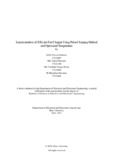| dc.contributor.advisor | Azad, A. K. M. Abdul Malek | |
| dc.contributor.author | Sadmani, Saffat Newaz | |
| dc.contributor.author | Hossain, Md. Tanvir | |
| dc.contributor.author | Emon, Md. Taohidul Haque | |
| dc.contributor.author | Rahman, M Mustafizur | |
| dc.date.accessioned | 2021-09-22T10:32:09Z | |
| dc.date.available | 2021-09-22T10:32:09Z | |
| dc.date.copyright | 2021 | |
| dc.date.issued | 2021-06 | |
| dc.identifier.other | ID 17121097 | |
| dc.identifier.other | ID 17121100 | |
| dc.identifier.other | ID 17121004 | |
| dc.identifier.other | ID 17121042 | |
| dc.identifier.uri | http://hdl.handle.net/10361/15038 | |
| dc.description | This thesis is submitted in partial fulfillment of the requirements for the degree of Bachelor of Science in Electrical and Electronic Engineering, 2021. | en_US |
| dc.description | Cataloged from PDF version of thesis. | |
| dc.description | Includes bibliographical references (pages 56-60). | |
| dc.description.abstract | Draining batteries at a high speed is one of the modern problems we face due to the electrical
devices’ power consumption rate. Moreover, as we need to use them frequently, charging them
quickly is the necessity of the era where we cannot pass a single moment without wireless
electrical devices. To fulfill the need, fast charging concept came to an existence where we
inject a larger amount of current or voltage in a controlled way. In view of the properties of the
lithium-ion battery, it is used widely for fast charging. Pulse method, CC-CV method,
Multistage constant current (MCC) etc. are some of the fast-charging methods. Though CC CV method is used widely, it has some drawbacks like heating the battery. So, to overcome the
drawbacks we use the pulse method where the temperature does not increase much but the
speed of the charging increases. In the pulse method, we are using two algorithms
simultaneously, optimal frequency search and optimal duty cycle search. We are also searching
for ambient temperature to fast charge as temperature may hamper fast charging performance. | en_US |
| dc.description.statementofresponsibility | Saffat Newaz Sadmani | |
| dc.description.statementofresponsibility | Md. Tanvir Hossain | |
| dc.description.statementofresponsibility | Md. Taohidul Haque Emon | |
| dc.description.statementofresponsibility | M Mustafizur Rahman | |
| dc.format.extent | 81 pages | |
| dc.language.iso | en | en_US |
| dc.publisher | Brac University | en_US |
| dc.rights | Brac University theses are protected by copyright. They may be viewed from this source for any purpose, but reproduction or distribution in any format is prohibited without written permission. | |
| dc.subject | Fast charging | en_US |
| dc.subject | Pulse method | en_US |
| dc.subject | Optimal frequency | en_US |
| dc.subject | Duty cycle | en_US |
| dc.subject | Temperature | en_US |
| dc.subject.lcsh | Atmospheric temperature | |
| dc.title | Implementation of efficient fast charger using pulse-charging method and optimized temperature | en_US |
| dc.type | Thesis | en_US |
| dc.contributor.department | Department of Electrical and Electronic Engineering, Brac University | |
| dc.description.degree | B. Electrical and Electronic Engineering | |

